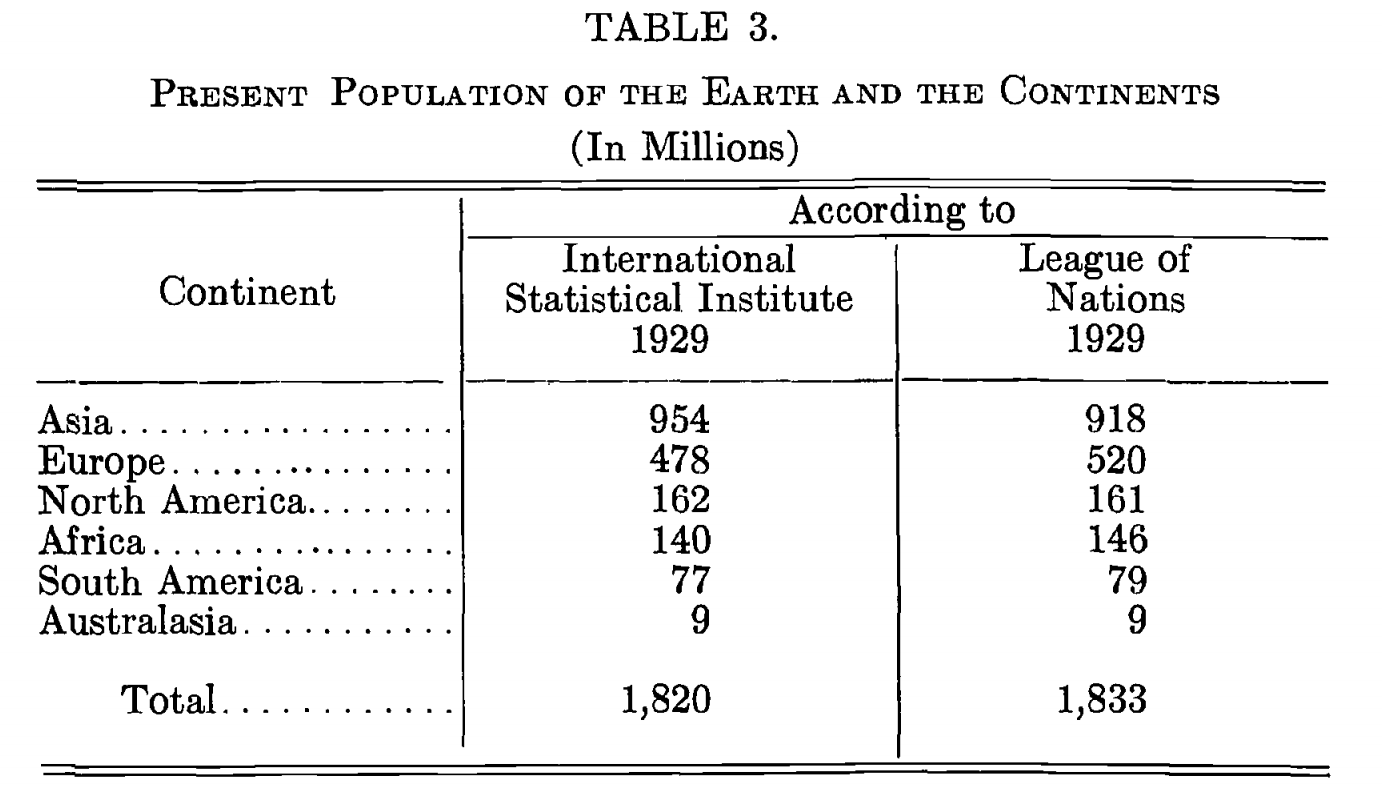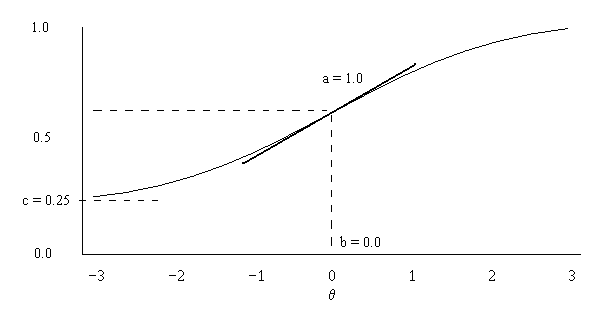|
Georg Rasch
Georg William Rasch () (21 September 1901 – 19 October 1980) was a Danish mathematician, statistician, and psychometrician, most famous for the development of a class of measurement models known as Rasch models. He studied with R.A. Fisher and also briefly with Ragnar Frisch, and was elected a member of the International Statistical Institute in 1948. In 1919, Rasch began studying mathematics at the University of Copenhagen. He completed a master's degree in 1925 and received a doctorate in science with thesis director Niels Erik Nørlund in 1930. Rasch married in 1928. Unable to find work as a mathematician in the 1930s, he turned to work as a statistical consultant. In this capacity, he worked on a range of problems, including problems of biological growth. Contributions to psychometrics Georg Rasch is best known for his contributions to psychometrics. His work in this field began when he used the Poisson distribution to model the number of errors made by students when readi ... [...More Info...] [...Related Items...] OR: [Wikipedia] [Google] [Baidu] |
Danes
Danes ( da, danskere, ) are a North Germanic ethnic group and nationality native to Denmark and a modern nation identified with the country of Denmark. This connection may be ancestral, legal, historical, or cultural. Danes generally regard themselves as a nationality and reserve the word "ethnic" for the description of recent immigrants, sometimes referred to as "new Danes". The contemporary Danish national identity is based on the idea of "Danishness", which is founded on principles formed through historical cultural connections and is typically not based on racial heritage. History Early history Denmark has been inhabited by various Germanic peoples since ancient times, including the Angles, Cimbri, Jutes, Herules, Teutones and others. The first mentions of " Danes" are recorded in the mid-6th century by historians Procopius ( el, δάνοι) and Jordanes (''danī''), who both refer to a tribe related to the Suetidi inhabiting the peninsula of Jutland, the province of Sc ... [...More Info...] [...Related Items...] OR: [Wikipedia] [Google] [Baidu] |
International Statistical Institute
The International Statistical Institute (ISI) is a professional association of statisticians. It was founded in 1885, although there had been international statistical congresses since 1853. The institute has about 4,000 elected members from government, academia, and the private sector. The affiliated Associations have membership open to any professional statistician. The institute publishes a variety of books and journals, and holds an international conference every two years. The biennial convention was commonly known as the ISI Session; however, since 2011, it is now referred to as the ISI World Statistics Congress. The permanent office of the institute is located in the Statistics Netherlands building in Leidschenveen (The Hague), in the Netherlands. Specialized Associations ISI serves as an umbrella for seven specialized Associations: * Bernoulli Society for Mathematical Statistics and Probability (BS) *International Association for Statistical Computing (IASC) *Internatio ... [...More Info...] [...Related Items...] OR: [Wikipedia] [Google] [Baidu] |
1980 Deaths
__NOTOC__ Year 198 (CXCVIII) was a common year starting on Sunday (link will display the full calendar) of the Julian calendar. At the time, it was known as the Year of the Consulship of Sergius and Gallus (or, less frequently, year 951 '' Ab urbe condita''). The denomination 198 for this year has been used since the early medieval period, when the Anno Domini calendar era became the prevalent method in Europe for naming years. Events By place Roman Empire *January 28 **Publius Septimius Geta, son of Septimius Severus, receives the title of Caesar. **Caracalla, son of Septimius Severus, is given the title of Augustus. China *Winter – Battle of Xiapi: The allied armies led by Cao Cao and Liu Bei defeat Lü Bu; afterward Cao Cao has him executed. By topic Religion * Marcus I succeeds Olympianus as Patriarch of Constantinople (until 211). Births * Lu Kai (or Jingfeng), Chinese official and general (d. 269) * Quan Cong, Chinese general and advisor ( ... [...More Info...] [...Related Items...] OR: [Wikipedia] [Google] [Baidu] |
Danish Statisticians
Danish may refer to: * Something of, from, or related to the country of Denmark People * A national or citizen of Denmark, also called a "Dane," see Demographics of Denmark * Culture of Denmark * Danish people or Danes, people with a Danish ancestral or ethnic identity * A member of the Danes, a Germanic tribe * Danish (name), a male given name and surname Language * Danish language, a North Germanic language used mostly in Denmark and Northern Germany * Danish tongue or Old Norse, the parent language of all North Germanic languages Food * Danish cuisine * Danish pastry, often simply called a "Danish" See also * Dane (other) * * Gdańsk * List of Danes * Languages of Denmark The Kingdom of Denmark has only one official language, Danish, the national language of the Danish people, but there are several minority languages spoken, namely Faroese, German, and Greenlandic. A large majority (about 86%) of Danes also s ... {{disambiguation Language a ... [...More Info...] [...Related Items...] OR: [Wikipedia] [Google] [Baidu] |
Elected Members Of The International Statistical Institute
{{disambiguation ...
Elected may refer to: * "Elected" (song), by Alice Cooper, 1973 * ''Elected'' (EP), by Ayreon, 2008 *The Elected, an American indie rock band See also *Election An election is a formal group decision-making process by which a population chooses an individual or multiple individuals to hold public office. Elections have been the usual mechanism by which modern representative democracy has opera ... [...More Info...] [...Related Items...] OR: [Wikipedia] [Google] [Baidu] |
Educational Psychology
Educational psychology is the branch of psychology concerned with the scientific study of human learning. The study of learning processes, from both cognitive and behavioral perspectives, allows researchers to understand individual differences in intelligence, cognitive development, affect, motivation, self-regulation, and self-concept, as well as their role in learning. The field of educational psychology relies heavily on quantitative methods, including testing and measurement, to enhance educational activities related to instructional design, classroom management, and assessment, which serve to facilitate learning processes in various educational settings across the lifespan.Snowman, Jack (1997). Educational Psychology: What Do We Teach, What Should We Teach?. "Educational Psychology", 9, 151-169 Educational psychology can in part be understood through its relationship with other disciplines. It is informed primarily by psychology, bearing a relationship to that discipline a ... [...More Info...] [...Related Items...] OR: [Wikipedia] [Google] [Baidu] |
Sufficient Statistics
In statistics, a statistic is ''sufficient'' with respect to a statistical model and its associated unknown parameter if "no other statistic that can be calculated from the same sample provides any additional information as to the value of the parameter". In particular, a statistic is sufficient for a family of probability distributions if the sample from which it is calculated gives no additional information than the statistic, as to which of those probability distributions is the sampling distribution. A related concept is that of linear sufficiency, which is weaker than ''sufficiency'' but can be applied in some cases where there is no sufficient statistic, although it is restricted to linear estimators. The Kolmogorov structure function deals with individual finite data; the related notion there is the algorithmic sufficient statistic. The concept is due to Sir Ronald Fisher in 1920. Stephen Stigler noted in 1973 that the concept of sufficiency had fallen out of favor in de ... [...More Info...] [...Related Items...] OR: [Wikipedia] [Google] [Baidu] |
Item Response Theory
In psychometrics, item response theory (IRT) (also known as latent trait theory, strong true score theory, or modern mental test theory) is a paradigm for the design, analysis, and scoring of tests, questionnaires, and similar instruments measuring abilities, attitudes, or other variables. It is a theory of testing based on the relationship between individuals' performances on a test item and the test takers' levels of performance on an overall measure of the ability that item was designed to measure. Several different statistical models are used to represent both item and test taker characteristics. Unlike simpler alternatives for creating scales and evaluating questionnaire responses, it does not assume that each item is equally difficult. This distinguishes IRT from, for instance, Likert scaling, in which ''"''All items are assumed to be replications of each other or in other words items are considered to be parallel instruments".A. van Alphen, R. Halfens, A. Hasman and T. Imbos. ... [...More Info...] [...Related Items...] OR: [Wikipedia] [Google] [Baidu] |
United States
The United States of America (U.S.A. or USA), commonly known as the United States (U.S. or US) or America, is a country primarily located in North America. It consists of 50 states, a federal district, five major unincorporated territories, nine Minor Outlying Islands, and 326 Indian reservations. The United States is also in free association with three Pacific Island sovereign states: the Federated States of Micronesia, the Marshall Islands, and the Republic of Palau. It is the world's third-largest country by both land and total area. It shares land borders with Canada to its north and with Mexico to its south and has maritime borders with the Bahamas, Cuba, Russia, and other nations. With a population of over 333 million, it is the most populous country in the Americas and the third most populous in the world. The national capital of the United States is Washington, D.C. and its most populous city and principal financial center is New York City. Paleo-Americ ... [...More Info...] [...Related Items...] OR: [Wikipedia] [Google] [Baidu] |
Poisson Distribution
In probability theory and statistics, the Poisson distribution is a discrete probability distribution that expresses the probability of a given number of events occurring in a fixed interval of time or space if these events occur with a known constant mean rate and Statistical independence, independently of the time since the last event. It is named after France, French mathematician Siméon Denis Poisson (; ). The Poisson distribution can also be used for the number of events in other specified interval types such as distance, area, or volume. For instance, a call center receives an average of 180 calls per hour, 24 hours a day. The calls are independent; receiving one does not change the probability of when the next one will arrive. The number of calls received during any minute has a Poisson probability distribution with mean 3: the most likely numbers are 2 and 3 but 1 and 4 are also likely and there is a small probability of it being as low as zero and a very smal ... [...More Info...] [...Related Items...] OR: [Wikipedia] [Google] [Baidu] |
Psychometrics
Psychometrics is a field of study within psychology concerned with the theory and technique of measurement. Psychometrics generally refers to specialized fields within psychology and education devoted to testing, measurement, assessment, and related activities. Psychometrics is concerned with the objective measurement of latent constructs that cannot be directly observed. Examples of latent constructs include intelligence, introversion, mental disorders, and educational achievement. The levels of individuals on nonobservable latent variables are inferred through mathematical modeling based on what is observed from individuals' responses to items on tests and scales. Practitioners are described as psychometricians, although not all who engage in psychometric research go by this title. Psychometricians usually possess specific qualifications such as degrees or certifications, and most are psychologists with advanced graduate training in psychometrics and measurement theory. I ... [...More Info...] [...Related Items...] OR: [Wikipedia] [Google] [Baidu] |


